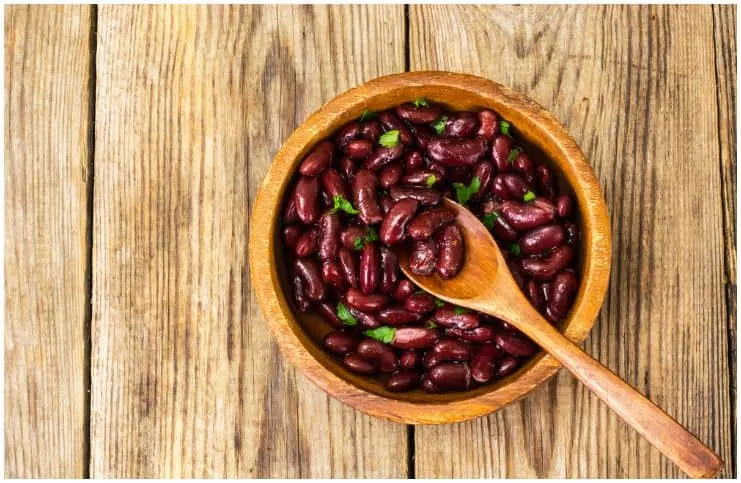What are the possible side effects of donating plasma?
Introduction
Plasma is the liquid part of blood, containing about 92 percent water as well as essential proteins and antibodies that help fight infections.
The protein found in the highest concentration in plasma is albumin, a protein vital for tissue growth and repair.
Plasma serves as a transport medium for delivering essential nutrients to the cells of different organs of the human body.
Also, plasma is involved in the transportation of waste products derived from cellular metabolism to the liver, kidneys, and lungs for excretion.
When isolated on its own, blood plasma is a light yellow liquid, and is similar to the color of straw.
Donor FAQ
During plasma donation, blood is drawn, and an automated machine separates the plasma from other blood components, which are returned to the donor.
The physical body commonly replaces plasma within about 48 hours of donation.
The donated plasma is used for people who suffer from immune deficiency disorders, bleeding disorders, and other conditions and injuries.
Interestingly, the US Food and Drug Administration doesn’t require paid plasma donations to be labeled.
The main reason is that the collected plasma never goes straight into another person. But, it is broken into many protein products that will become pharmaceuticals.
Eligibility Requirements
They vary by state, however, some are pretty standard and include:
- to be in generally good health;
- to be at least 18 years old;
- to follow a recommended diet including 50 to 80 g of daily protein;
- to test non-reactive for transmissible viruses, such as – HIV and hepatitis;
- to pass a medical examination;
- to weigh at least 110 pounds.
Pregnancy & Breastfeeding
According to the official guidelines, you can donate plasma 6 weeks after delivery. However, some companies will require that you wait at least 6 months.
Moreover, you are allowed to donate plasma even if you are breastfeeding.
Smoking Weed
While it is not recommended the use of controlled substances, marijuana use does not necessarily disqualify you from giving plasma as long as you are feeling well. Also, there is no test for THC.
Working Out
It is recommended to avoid practicing moderate physical exercise for 12-24 hours following a donation.
Best Foods To Eat
It is recommended to eat foods rich in protein & iron, no more than 3 hours before donating.
Healthy foods rich in protein include:
- Hemp seeds
- Pumpkin seeds
- Walnuts
- Peanuts
- Almonds
- Sunflower seeds
- Pistachios
- Flaxseeds
- Cashews
- Sesame seeds
- Oat bran
- Chia seeds
- Hazelnuts
- Brazil nuts
- Pine nuts
- Millet
- Pecans
- Lentils
- Chickpeas (garbanzo beans)
- Kidney beans
- Navy beans
- Mung beans
- Quinoa
- Wild rice
- Broccoli
- Brussels sprouts
- Sweet potato.
Healthy foods rich in iron include:
- Persimmons
- Figs
- Raisins
- Mulberries
- Potatoes
- Parsley
- Jerusalem-artichokes
- Lentils
- Dandelion greens
- Chickpeas
- Spinach
- Beet greens
- Lima beans
- Navy beans
- Asparagus
- Kale
- Sweet potato
- Elderberries
- Passion-fruit
- Currants
- Prunes
- Dates.
Note – vitamin C can help the body better absorb nonheme iron.
Foods rich in vitamin C include:
- Acerola cherries
- Green hot chili peppers
- Guavas
- Sweet yellow peppers
- Currants
- Parsley
- Kale
- Kiwis
- Broccoli
- Cauliflower
- Brussels sprouts
- Banana pepper
- Lemons
- Litchis
- Oranges
- Jujube
- Persimmons
- Kohlrabi
- Papayas
- Pummelo
- Strawberries
- Red cabbage
- Pineapple
- Clementines
- Grapefruit.
Tips on How to Donate
Below is a list of tips to follow before, during, and after giving plasma:
- rest after giving plasma and let your body recover;
- eat a protein and iron-rich meal;
- consume plenty of fluids (the best is plain water), especially after donating;
- if your blood pressure tends to be low, increase your sodium intake before and after the donation;
- keep your venipuncture site clean;
- avoid alcohol, caffeine, cigarettes, and illegal drugs.
Side Effects of Donating Plasma
Bruising
Although it is hoped that no donor will have any side effects from giving plasma, for some people bruising of the arm may occur at the venipuncture site.
Also, if the needle is pushed in slightly too far, it can put extra pressure on the other side of the vein wall that could cause bruising around the whole area.
If there is bleeding from the venipuncture site, it is recommended to raise your arm and apply pressure.
Note – if a bruise occurs while you are donating plasma, most centers will halt the donation to keep it from getting worse.
Dehydration
It is a common side effect since plasma contains a lot of water (up to 92 percent by volume).
However, dehydration after donating plasma is usually not severe.
Symptoms of dehydration include:
- dark-colored urine;
- dry mouth and tongue;
- fatigue;
- no tears when crying;
- dizziness;
- less frequent urination;
- extreme thirst;
- irritability;
- sunken eyes.
Note – when you are dehydrated, it is vital to drink fluids that contain electrolytes.
Keep in mind that caffeine dehydrates you.
You should also avoid foods and drinks that contain caffeine (like green tea, chocolate, energy drinks, some sodas, and coffee) before and after you donate.
ALSO READ: Interesting Facts About Tay-Sachs Disease
Dizziness
It is a frequent side effect of donating plasma. Sometimes, some donors may become so weakened that they faint.
If fainting happens, it is recommended to sit with your head between your knees or lie down.
ALSO READ: Yeast Infection vs Chlamydia
Lower Immunity
Frequent donations decrease plasma levels of serum immunoglobulins (glycoprotein molecules that are produced by plasma cells), possibly increasing infection risk by lowering the immune system.
A strong immune system protects you against colds and flu as well as keeps you away from chronic viral infections such as herpes or hepatitis.
More importantly, individuals with poor immunity have significantly increased chances of developing lymphomas and certain types of skin cancer.
Citrate Reaction
When donating plasma, citrate is added to the blood as it enters the separating machine to prevent clotting.
Signs and symptoms of a citrate reaction include:
- shortness of breath;
- a rapid or slow pulse;
- muscle twitching;
- light-headedness;
- shivering;
- chills;
- experiencing a metallic taste;
- feeling vibrations;
- numbness or tingling, particularly in the fingers, lips, and toes.
If untreated, it may lead to shock, seizures, or cardiac arrest.
Note – about 7 percent of donors experience citrate reactions.
Images credit – Shutterstock
ALSO READ: Famous People With Acromegaly & Gigantism
Sources https://journals.lww.com/Female_plasma_donors,_plasma,_and_platelet https://www.uq.edu.au/plasma-blood-donors-studied-research-project


Lana Burkett
Saturday 7th of September 2024
I have donated 10 times and will continue the key to a good donation is hydrating all day before your donation and eating healthy food it seems to make the process of donating quicker. I have also noticed I feel better after a donation. I'm grateful that I can help save someone elses life.
Claud
Monday 30th of August 2021
Is it safe for a 70 year old man to donate plasma? I am in good health but worry that donating may have unwanted side effects.
Dorothy
Monday 7th of January 2019
I have noticed the past three times after donating I throw up, what could be causing this?
HalD
Monday 2nd of March 2020
As a phlebotomist at a donation center and from my own experience donating for about a decade now, you either didn't eat the right kind of food within 2 hours of donating, weren't as hydrated as you should be, or nerves (possibly from a fear of the needle) sent you into that reaction. I recommend eating and hydrating immediately after donating and resting if possible.